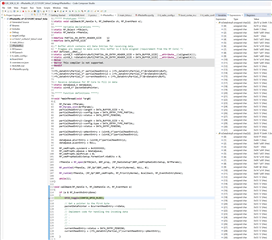Tool/software:
Hi,
We are working with CC1311P3 in our RF design. We have a use case to do continuous receive with unlimited packet length. Please let us know if CC1311P3, can do continuous data reception for unlimited length with or without detection of a configured Preamble and sync word.
Please let us know if we can receive all the data out of 2FSK demodulator in any mode without checking the sync word. We do not require any baseband decoding in this case.
Thanks!


